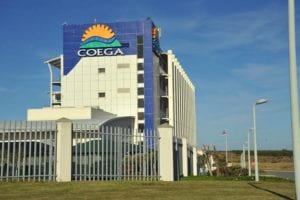Progress at the Coega Industrial Development Zone (IDZ) in Nelson Mandela Bay has drawn positive comments from government.
A joint oversight parliamentary committee serving on economic development, trade and international relations visited the site last week and was pleased with what it found. Litho Suka, a delegate of the national committee of parliament (NCOP), said Coega has enormous potential to further broaden the economy of Nelson Mandela Bay and the Eastern Cape. “Investor interest and investment in the Coega IDZ is commendable,” said Suka. CDC secured 19 new investors in the 2014/15 financial year, which ended last month. The investments, together valued at R1.8 billion, originated from Asian, European and South African firms. CDC chief financial officer Bongeka Jojo said during a briefing to the parliamentary committee that CDC aims to break even by 2018. “During the 2014/15 financial year Coega had generated R427 million in revenue and we aim to be self-sustainable three years from now,” Jojo told committee members and the media.The Dedisa Peaking Power Plant
The parliamentary committee also visited businesses located in the Coega IDZ – including the R3.5 billion Dedisa Peaking Power Plant, the largest investment project in the IDZ and South African IDZs and special economic zones (SEZs).The 342 Megawatt power plant is expected to be operational in the third quarter of this year.
Xola Pakati, chairperson of Eastern Cape Provincial Economic Development and Environmental Affairs, said he was impressed with the overall progress the CDC has made. He added that Coega was a good example of how an IDZ should operate. “Coega proved sceptics who demonised IDZs as white elephants completely wrong,” said Pakati. CDC Business Development Executive Manager, Christopher Mashigo said the organisation wants to be a success template for regional economic development, which can be replicated in other South African industrial areas and economic nodes. Coega’s transformation from an IDZ to a special economic zone (SEZ) began in May last year. “Our SEZ status will introduce a number of advantages including predictability as far as project funding was concerned,” said Mashigo.





